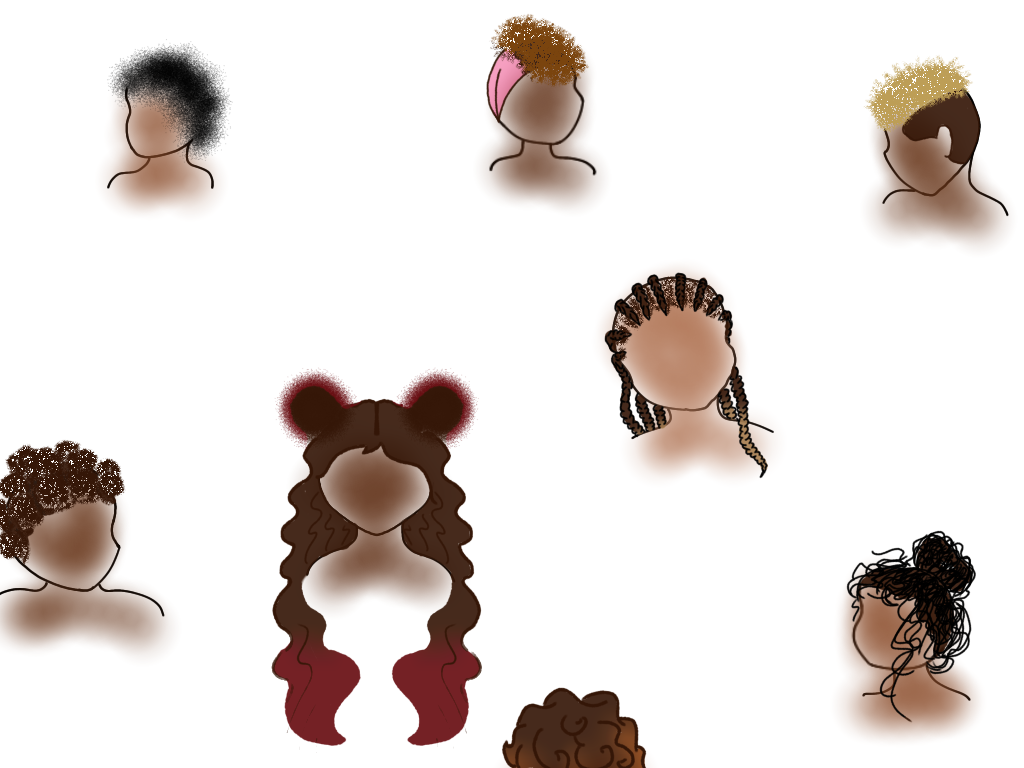In September 2023, Darryl George, a Black high school student in Texas, was suspended for his hairstyle, according to an article published by the Associated Press (AP) . George received more than two weeks of in-school suspension for wearing twisted dreadlocks to school. According to the article, “School officials said his dreadlocks fell below his eyebrows and ear lobes and violated the district’s dress code.”
The CROWN Act stands for Creating a Respectful and Open World for Natural Hair. According to the CROWN Act’s official website, “While progress has been made, race-based hair discrimination remains a systemic problem in the workplace – from hiring practices to daily workplace interactions.” With the CROWN Act, students like George would have the legal measures to protect them from this discrimination.
As stated in an article in the Washingtonian, The CROWN Act was founded in 2018 by “Esi Eggleston Bracey, Unilever’s chief operating officer and executive vice president of beauty and personal care; Kelli Richardson Lawson, the founder and CEO of D.C. marketing firm JOY Collective; Orlena Nwokah Blanchard, JOY Collective’s president and chief operating officer; and social impact and legislative strategist Adjoa B. Asmoah.”
Currently, the CROWN Act is law in 23 states, Illinois being one of them.
On March 18, 2022, the United States House of Representatives passed the CROWN Act. Introduced by Rep. Bonnie Watson Coleman (D-N.J.), H.R. 2116 or the Crown Act passed with support from 235 representatives. According to the CROWN Act’s official website, the measure passed with, “14 Republicans joining all Democrats in supporting the measure.” The website stated that the act did not pass the United States Senate after it was introduced by Senator Cory Booker (D-NJ), who advocated for its passage by unanimous consent on December 14, 2022.
This legislation is designed to fight against long-standing and discriminatory practices surrounding Black women’s hair. Within the House’s Bill H. R. 2116 it was cited that, “…as recently as 2018, the U.S. Armed Forces had grooming policies that barred natural or protective hairstyles that servicemembers of African descent commonly wear and that described these hairstyles as ‘unkempt.’”
Further, the NAACP Legal Defense Fund states, “Hair discrimination is an undue burden that polices Black identity and upholds white supremacy. With no nationwide legal protections against hair discrimination, Black people are often left to risk facing consequences at school or work for their natural hair or invest time and money to conform to Eurocentric professionalism and beauty standards.”
This discrimination disproportionately affects Black women. As reported by the NAACP Legal Defense Fund, a study conducted by Dove stated that “Black women are 1.5x more likely to be sent home from their workplace because of their hair. Black women were also 80% more likely to change their hair from its natural state to fit into the office setting.”
Demanding these changes is not only racist, but costly and damaging to hair due to “chemical or heat straighteners that can damage the hair in the short and long term. These processes are both expensive and time-consuming. The lack of availability of Black hair products in stores and lack of Black salons and barbershops in some areas has a definitive economic impact,” continued the NAACP Legal Defense Fund.
Discrimination based on hair style and texture is a civil rights and human rights issue. “We won’t let race-based hair discrimination be a conduit for systemic racism. It’s time to pass the CROWN Act,” stated the CROWN Act’s official website.




























